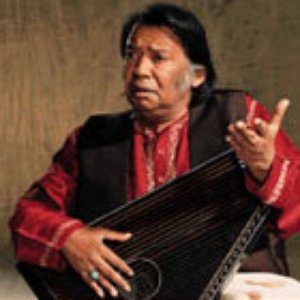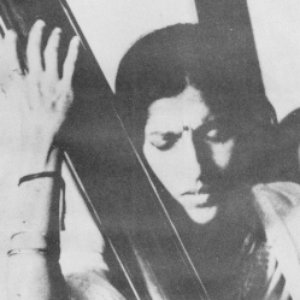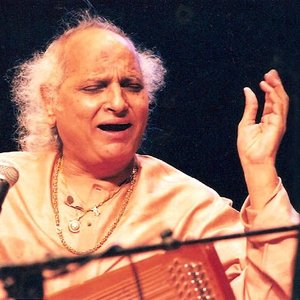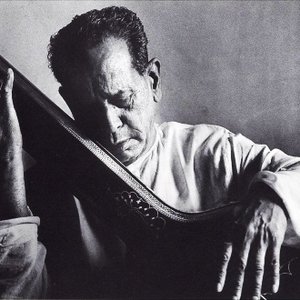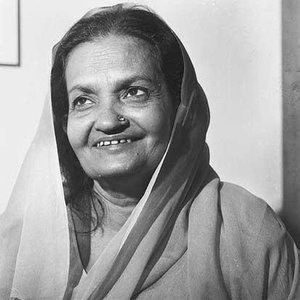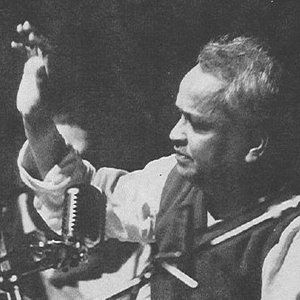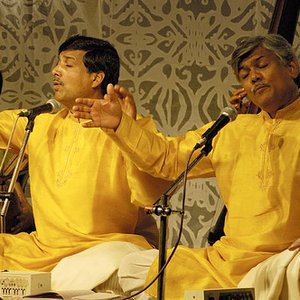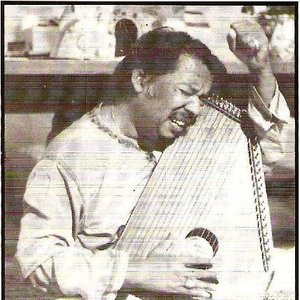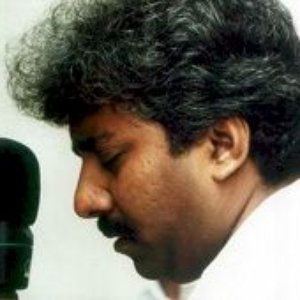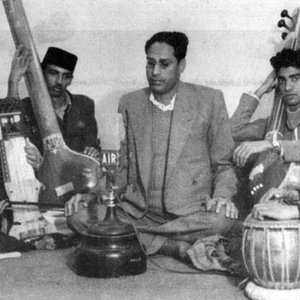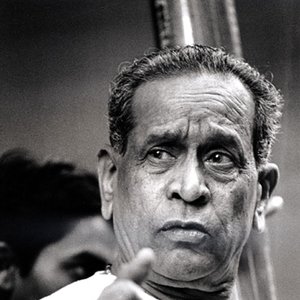Biography
#1 Ustad Bade Fateh Ali Khan (1935– 4 January 2017) was amongst the foremost Khyal vocalists in Pakistan, and a leading exponent of the Patiala Gharana (stylistic lineage). He is the younger of the singing duo Amanat Ali and Fateh Ali, who enjoyed immense prestige and success in Pakistan as well as India, until the demise of Amanat Ali Khan (1922–1974). The "Bade" (elder) prefix got attached to Fateh Ali's name, after younger Pakistani musicians with similar names, started making waves with an entirely different genre of music.
#2 Fateh Ali Khan (Urdu: فتح علی خان) was a classical singer and Qawwali musician. He was born in Jalandhar, Punjab, British India in 1901. Ustad Fateh Ali Khan was the father of Pakistani Qawwali musician, Ustad Nusrat Fateh Ali Khan.
#1 Fateh Ali and his late elder brother were trained by their father, Akhtar Hussain Khan, a distinguished vocalist in the patronage of the princely state of Patiala in colonial, British India. Their grandfather, Ali Baksh Jarnail, also served the same court, and was a cofounder of the Patiala Gharana. The prodigious talent of Amanat Ali and Fateh Ali Khan (Classical Musician) received early encouragement at the Patiala Gharana.
They had a glorious debut in 1945 at Lahore, sponsored by the influential connoisseur, Pandit Jeevanlal Mattoo. Their breakthrough came at the All-Bengal Music Conference in Calcutta in 1949, when Amanat Ali was 17, and Fateh Ali was 14, after which they never looked back.
Amanat Ali – Fateh Ali became celebrities while still in their teens in undivided British India, and achieved their highest official recognition, when the President of Pakistan conferred on them the Pride of Performance Medal in 1969. The "Bade" (elder) prefix got attached to Fateh Ali's name, after younger Pakistani musicians with similar names, started making waves with an entirely different genre of music.
Life changed dramatically for the budding stars when India was partitioned in 1947, and the family opted to migrate to Pakistan. Overcoming destitution in their new home, the duo swung back, while still in their teens, to earn their rightful place amongst the foremost vocalists of the subcontinent. Fateh Ali was dealt a devastating blow with the demise of his brother Amanat Ali in 1974. Fateh Ali is reported to have suffered a deep depression for over a year and a half, following which he joined Radio Pakistan as a supervisor.
The two brothers as a duo had neatly divided their singing by specialisation. Amanat Ali Khan had a gifted voice and he embellished his singing in broad sweeps by 'lagao', and blossoming out in the upper register while Fateh Ali engaged in intricacies of the countless 'behlawas' and complex taans, in a much lower and gravelly voice, respectively drawing inspiration from two elders of their gharana, Ustad Bade Ghulam Ali Khan and Ustad Ashiq Ali Khan.
Fateh Ali was urged to restart his performing career, but would break into tears when first beginning to sing. Bade Fateh Ali Khan eventually overcame this emotional block, and started singing as a duo with his younger brother Hamid Ali Khan, as well his nephews, Asad Amanat Ali Khan (1952–2007) or Amjad Amanat Ali Khan who are both sons of his late brother Amanat Ali Khan. The absence of Amanat Ali made Fateh Ali redevelop and re-align his singing style. He had to fill the void left by Amanat Ali in the middle of his career, which was not an easy thing to do. The void was only partly filled by Amjad Amanat Ali Khan and Asad Amanat Ali Khan, as these two have occupied a relatively junior role in comparison with the almost equal footing that Amanat Ali and Fateh Ali fulfilled as a duo.
Though trained also in the medieval Dhrupad genre, the uncle-nephew duo restricts its repertoire to the modern mainstream genre, Khayal, and the romanticist genres, Thumris, Dadra, and Ghazal. The pair had, since their alliance, performed widely in Europe, North America, the Middle East, and South Asia, and released several recordings. One highly unusual CD released in 1992 on the ECM label is entitled Ragas and Sagas, which is a collaboration with Norwegian saxophonist Jan Garbarek. Fateh Ali has performed all over the world and has many students internationally. One of his favourite students was Deeyah from Norway. She is originally half Afghan and half Pakistani. She was born in Norway. And now she is in UK and have become an Emmy Award winner film maker.
In the latter half of the 20th century, the Patiala style of Khayal vocalism has been represented by two streams of the gharana. One stream, gave the music world the Amanat Ali and Fateh Ali duo. The other stream, through its training of Patiala-Kasur gharana vocalists, produced Bade Ghulam Ali Khan (1903–1968), his brother Barkat Ali Khan (1907–1963), and the former's son, Munawar Ali Khan (1933–1989). With the stylistic distinctiveness and continuity of Khayal gharanas having fallen prey to socio-cultural changes on both sides of the India-Pakistan border, Bade Fateh Ali Khan is the last of the thoroughbred Patiala Gharana vocalists.
His most talented disciple is Ahmad Wali of Afghanistan, who has shown immense talent at such a young age that Ustad has bestowed upon Ahmad Wali his own name thus calling him Ahmad Wali Fateh Ali Khan. Ahmad Wali Fateh Ali Khan was born in 1987 and was first taught by his father and other masters (teachers) in the Patiala Gharana made famous by Ustad Mohammad Hussain Sarahang and now Wali Fateh Ali Khan is one of the most talented singer in Afghanistan.The famous nohakhawan Haider Rizvi Alhussaini was also a student of the great Bade Fateh Ali Khan. In 2016, he teaches classical music classes at Pakistan National Council of Arts (PNCA) as he has gotten older.
#2 Fateh Ali Khan (Urdu: فتح علی خان) was a classical singer and Qawwali musician. He was born in Jalandhar, Punjab, British India in 1901. Ustad Fateh Ali Khan was the father of Pakistani Qawwali musician, Ustad Nusrat Fateh Ali Khan. Their family has an unbroken tradition of Qawwali for over 600 years. Ustad Fateh Ali Khan was trained in classical music and Qawwali by his father, Maula Baksh Khan, and he soon distinguished himself as a skilled vocalist and instrumentalist. He learnt to play traditional Indian instruments such as sitar, sarod and vichitraveena as well as Western instruments like the violin. He also mastered thousands of verses in Punjabi, Urdu, Arabic and Persian.
Ustad Fateh Ali Khan was the leader of his family's Qawwali party but they were billed as Fateh Ali Khan, Mubarak Ali Khan & Party. Ustad Mubarak Ali Khan, his brother, shared both singing and harmonium-playing duties with him. They were regarded as among the foremost exponents of Qawwali in their time. They are credited with popularizing the poetry of Allama Iqbal through their singing. Iqbal's poetry was regarded as difficult and while he was highly admired in academic circles and by intellectuals, he did not have much of a popular following. Fateh Ali Khan and Mubarak Ali Khan, more than anyone else, helped Iqbal achieve popular success as well:
“ Allama Iqbal paid the ultimate homage to the two brothers by saying: 'I was restricted to schools and colleges only. You (Ustad Fateh Ali Khan) have spread my poetry through India'. ”
In 1948, his son, Nusrat, was born in Faisalabad. Ustad Fateh Ali Khan wanted Nusrat to become a doctor or an engineer because he felt Qawwali artistes had low social status. However, Nusrat showed such interest in and aptitude for Qawwali that his father soon relented, and began training him. However, Ustad Fateh Ali Khan died in 1964 at the age of sixty-three, when Nusrat was sixteen and still in school. Nusrat's training was completed by Ustad Fateh Ali Khan's brothers, Ustad Mubarak Ali Khan and Ustad Salamat Ali Khan.
Artist descriptions on Last.fm are editable by everyone. Feel free to contribute!
All user-contributed text on this page is available under the Creative Commons Attribution-ShareAlike License; additional terms may apply.
